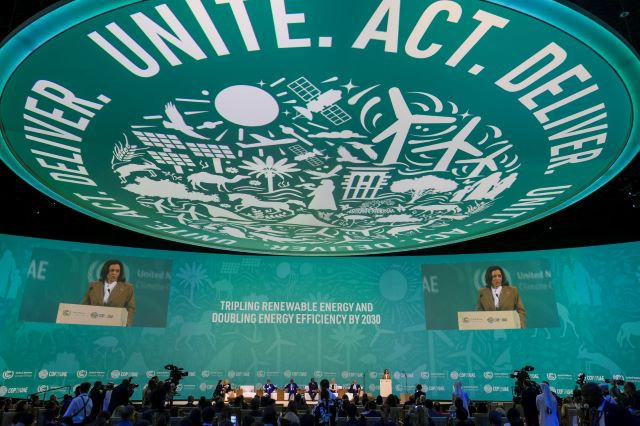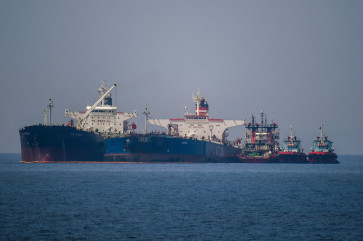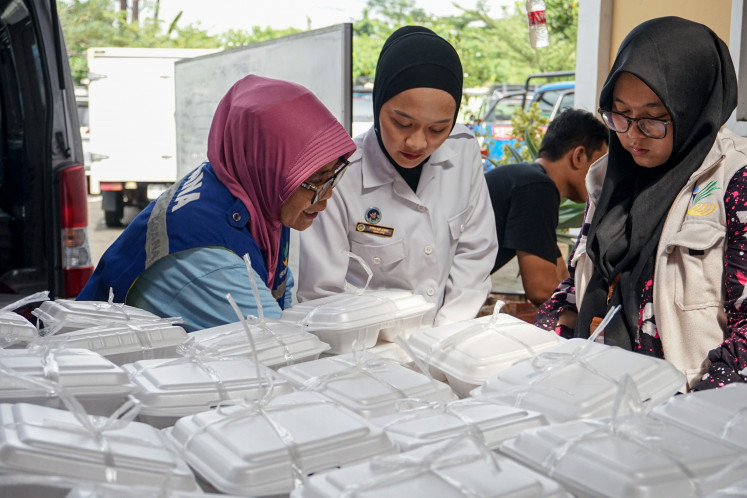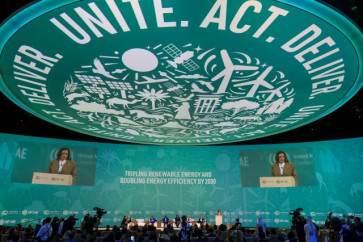Popular Reads
Top Results
Can't find what you're looking for?
View all search resultsPopular Reads
Top Results
Can't find what you're looking for?
View all search resultsClimate finance: Stretching the limits of Islamic finance
Islamic financial institutions need to diversify a large portion of their portfolios and significantly reduce exposure to fossil fuel-related assets.
Change text size
Gift Premium Articles
to Anyone
I
slamic finance is at the crossroads of climate interchange. To put it into context, while enjoying constant growth and with a market size already amounting to US$3 trillion globally (ADB, 2022), the majority of large global Islamic financial institutions benefit from the fossil economy. On the other hand, the world is going in a completely different direction with businesses focused on environmental, social and governance (ESG) issues.
The home countries of the four largest global Islamic banks, Al Rajhi of Saudi Arabia, Dubai Islamic Bank, NBD Emirates and Kuwait Finance House are oil-rich economies. These financial institutions directly or indirectly rely on oil revenues for their business growth.
Similarly, Islamic financial institutions in Indonesia are also exposed to fossil-based economic activities, although on a much smaller scale. The portfolio of Islamic banks in the mining and energy sector is limited. For instance, Islamic banking financing in the mining sector was only Rp 9.11 trillion ($587 million) in 2022, while national banks extended up to Rp 237.39 trillion to the mining sector, which is dominated by coal.
The UAE Consensus, one of the outcomes of the Conference of Parties or COP 28 meeting in Dubai, United Arab Emirates (UAE), urges the private sector, particularly financial institutions, to play a greater role in climate finance. It emphasizes that financial support for climate action should become more available, accessible and affordable, and ensure climate investment is seen as an economic opportunity.
One such opportunity is in energy transition financing, which is critical in cutting carbon emissions to zero, particularly by maintaining global temperatures at the current level. Participating countries have set out their own zero-carbon emissions targets. Indonesia, for instance, has a zero-emissions target to be achieved by 2060.
With such ambitious goals, countries must galvanize all available resources. While developed countries may pledge to support developing countries with aid programs, domestic resources within developing countries must also be optimized. The cost of inaction is just too much. One estimate suggests that if countries do not get their act together, by the year 2100, the sea level could rise by 130 centimeters.
This predicted rise will drastically submerge many coastal areas around the planet. Countries with a lower elevation, such as Maldives with an average elevation of 1.5 meters, will be at higher risk. If such a situation happens, the impact will also be worse for Indonesia, which, according to one study (Hooijer & Vernimmen, 2021), has the largest extent of land below 2 m above mean sea level.


















